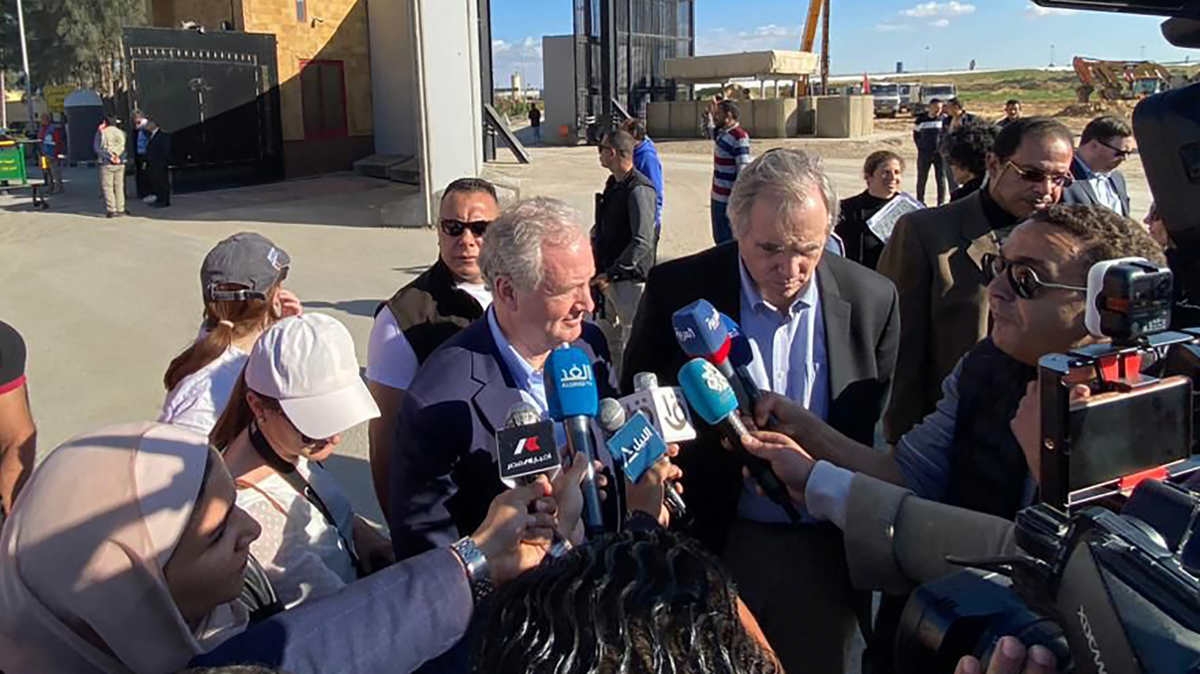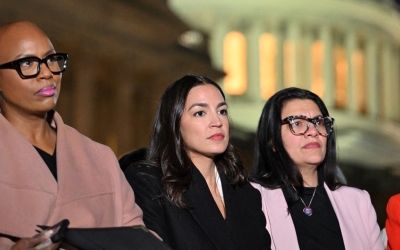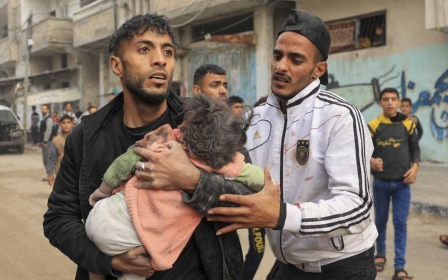War on Gaza: Israel should 'face consequences', senior US senator says

Senior Democratic Senator Chris Van Hollen said Israel should face “consequences” for civilian deaths in Gaza and its refusal to allow humanitarian aid into the besieged enclave.
Van Hollen, a top Democrat on the Senate Foreign Relations Committee, was responding to a question from CBS News on Sunday over his statement that the Israeli government was making “political decisions” by imposing an “unnecessarily cumbersome process” for humanitarian aid to enter Gaza.
“I do think there…have to be consequences,” Van Hollen said, without elaborating on what the US should do.
“Secretary Blinken and President Biden had been right to insist on two things: a reduction in the unacceptable levels of civilian casualties, and much more cooperation when it comes to providing humanitarian assistance. We've not seen that.”
Van Hollen, who visited Egypt’s Rafah crossing into Gaza before the CBS interview, also said that humanitarian aid workers told him they had never seen a worse environment to deliver humanitarian assistance.
New MEE newsletter: Jerusalem Dispatch
Sign up to get the latest insights and analysis on Israel-Palestine, alongside Turkey Unpacked and other MEE newsletters
"The other big issue is within Gaza, the so-called deconfliction process, which is just a fancy name for those who are providing humanitarian assistance to have the confidence that they can deliver it without being killed,” he said.
The Gaza Strip is facing a worsening humanitarian situation and famine is "around the corner", according to UN emergency relief chief Martin Griffiths.
Weapons transfer bypassing Congress
According to Unrwa, 1.9 million people, or nearly 85 percent of the enclave's total population, are estimated to be internally displaced. The majority are living in squalid conditions along the border with Egypt.
The UN has documented the outbreak of chicken pox, meningitis, jaundice, and respiratory infections because of severe overcrowding, and says Palestinians are now defecating outside due to a lack of latrines. Poor sanitation is leading to diarrhoea.
Meanwhile, just nine out of 36 health facilities in Gaza are operating, and only partially. They face shortages of medicine and doctors are operating without anesthesia and antibiotics.
The Biden administration has tried to balance its unconditional support for Israel’s military campaign by pressuring the government to allow more aid into the enclave.
Aid groups have said the roughly 150 trunks with humanitarian supplies entering Gaza are no match for the need.
Israel has said it is shifting to a "lower-intensity" offensive in Gaza, but the Biden administration has had to focus its recent attention on its ally’s military action outside the enclave.
Last week, Israel assassinated a senior Hamas official in Beirut and on Monday killed a senior Hezbollah commander in southern Lebanon, raising the risks of a regional war.
During the early months of the war, some progressive Democratic lawmakers issued calls for a ceasefire in Gaza. However, as the fighting reaches 100 days, a slow-rolling Israeli offensive - and focus on US elections - could sap some energy away from those highly publicised earlier efforts.
Van Hollen, who previously criticised Israel over the killing of Palestinian journalist Shireen Abu Akleh, has not gone so far as to publicly call for a ceasefire in Gaza.
In December he joined other moderate Democratic lawmakers to criticise Biden’s move to transfer weapons to Israel, bypassing the congressional review process.
Middle East Eye delivers independent and unrivalled coverage and analysis of the Middle East, North Africa and beyond. To learn more about republishing this content and the associated fees, please fill out this form. More about MEE can be found here.





